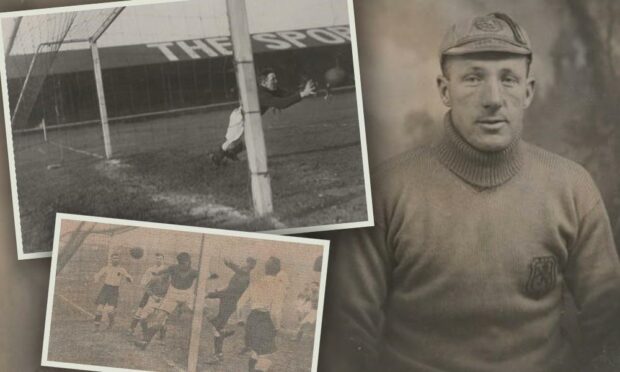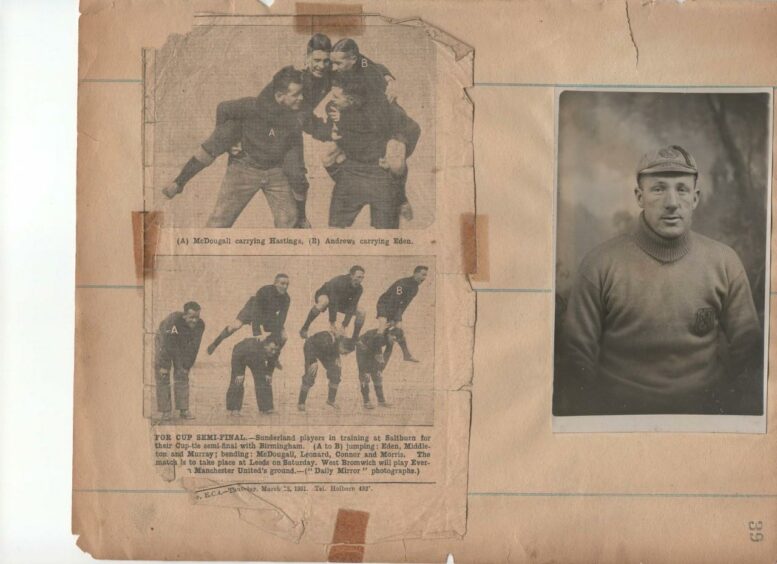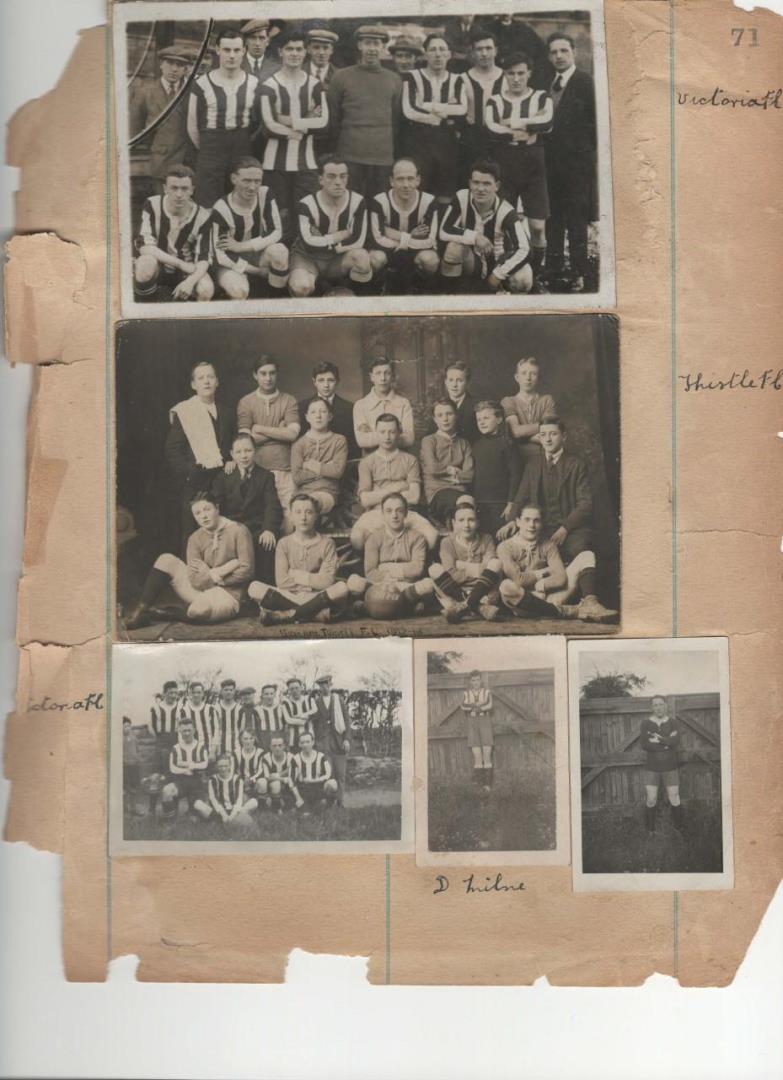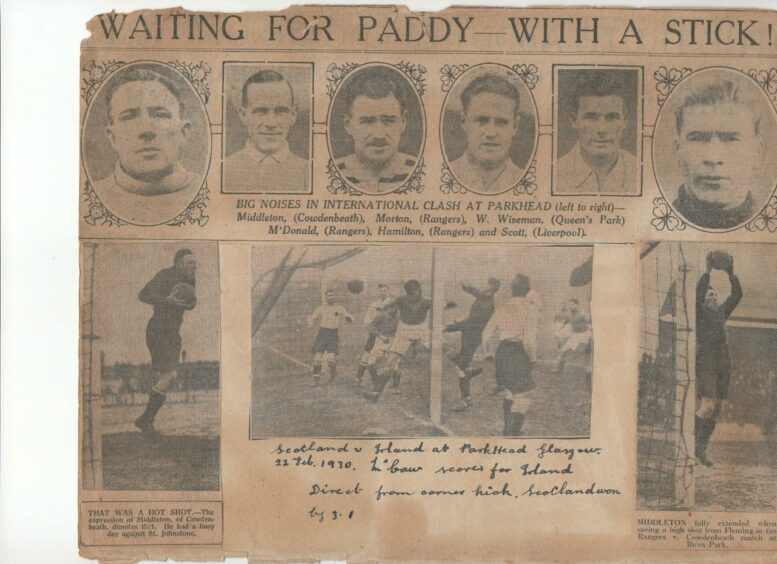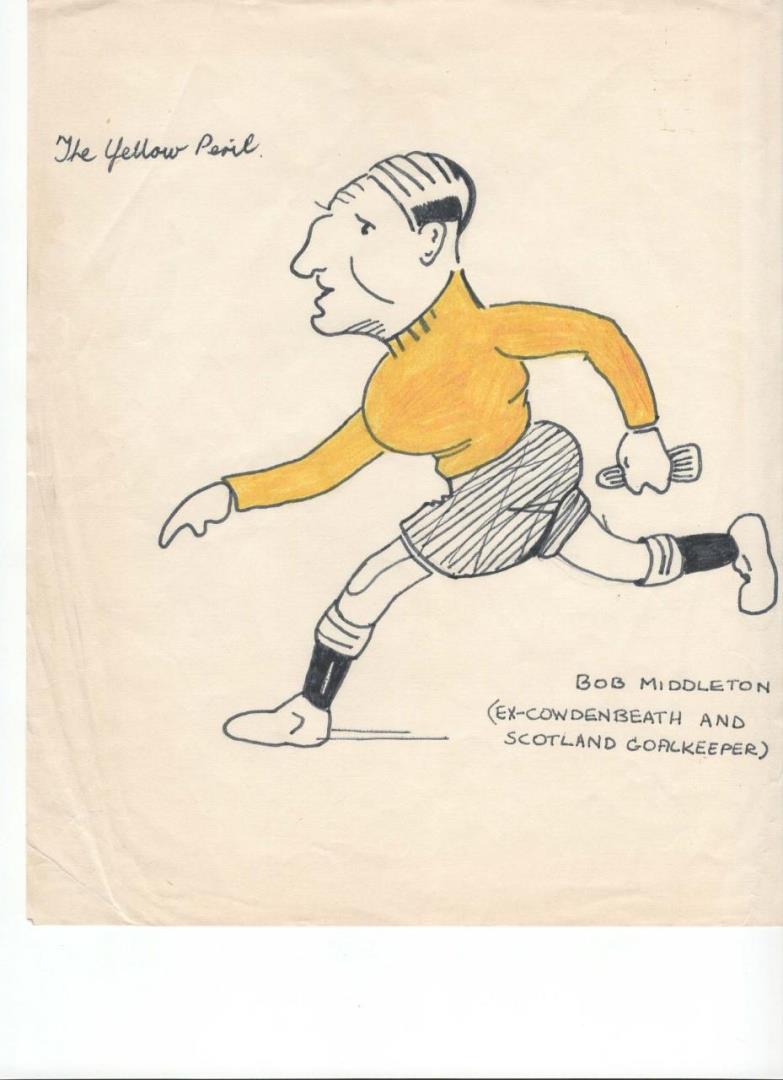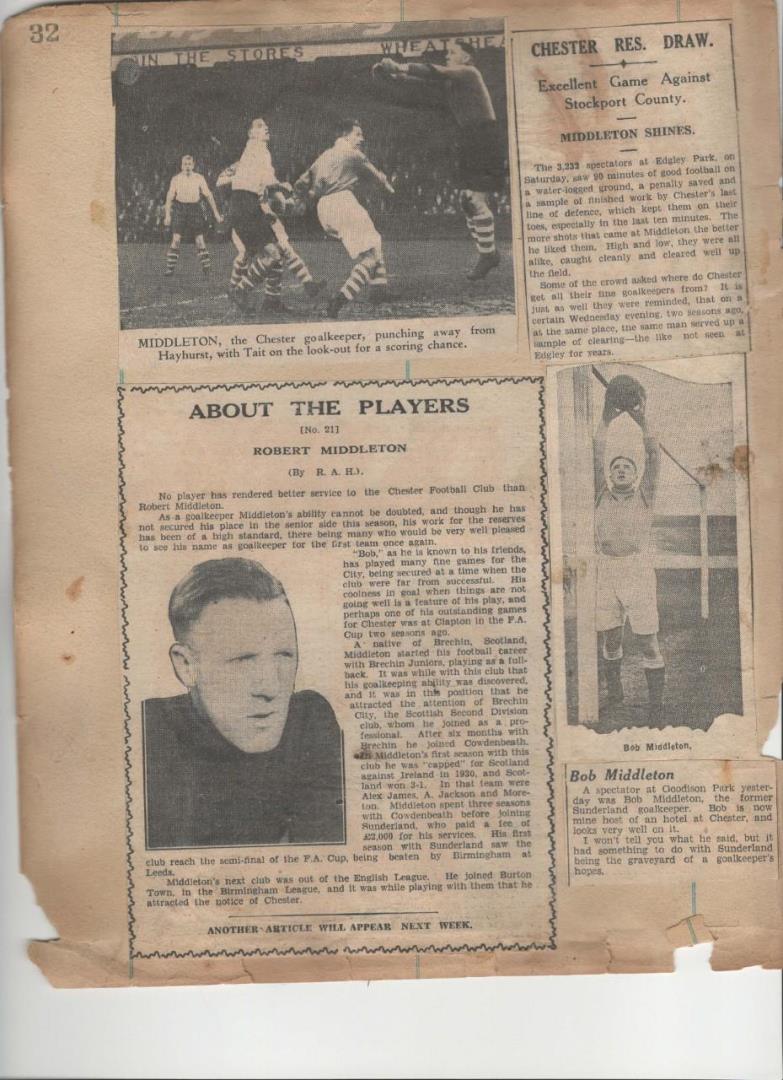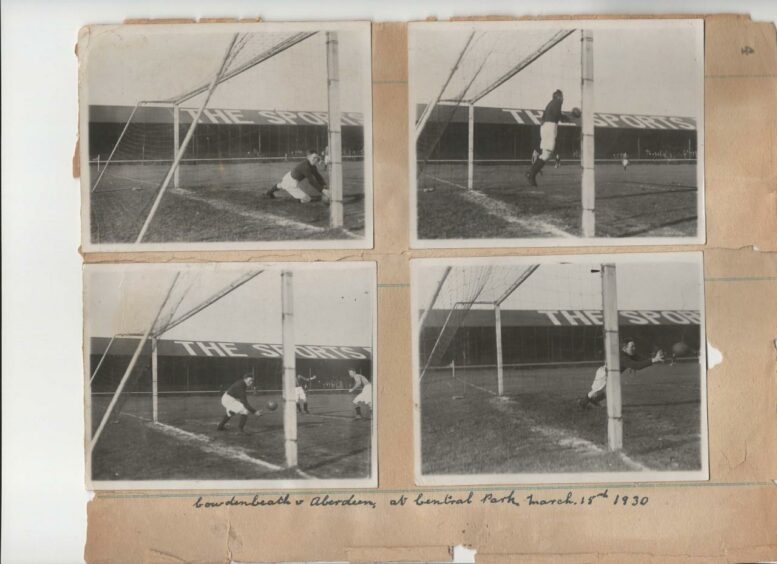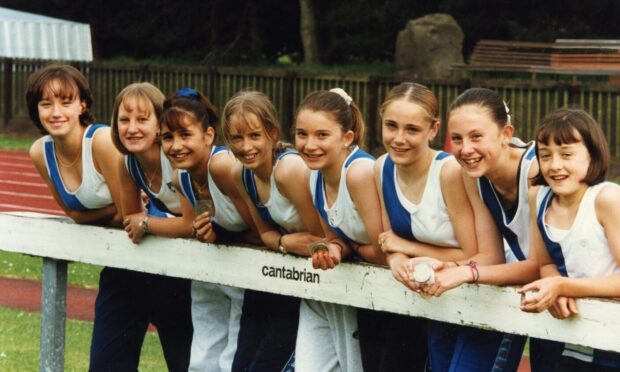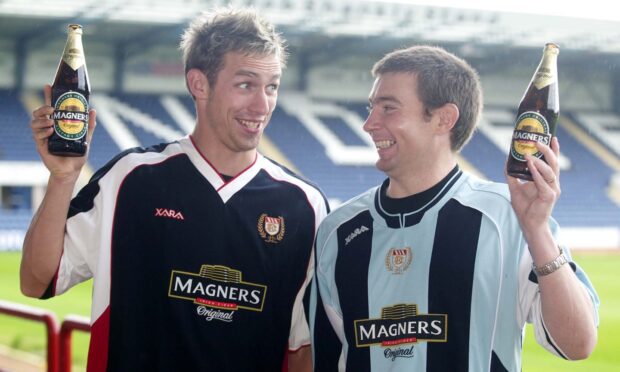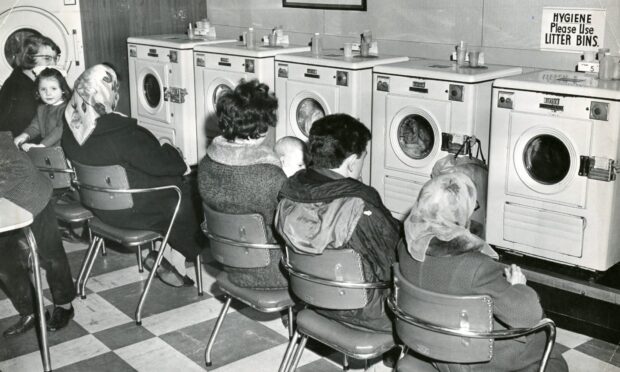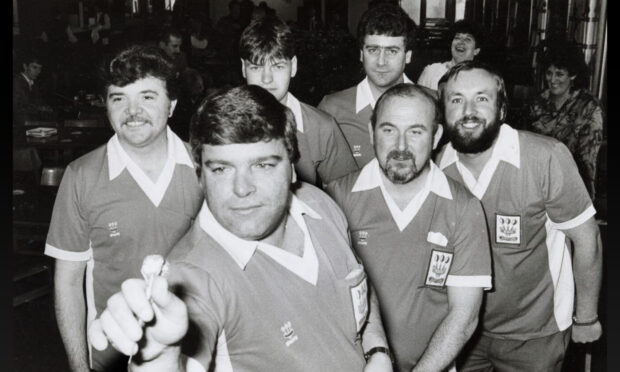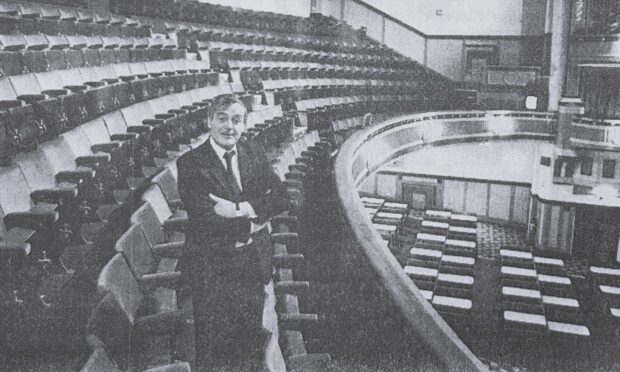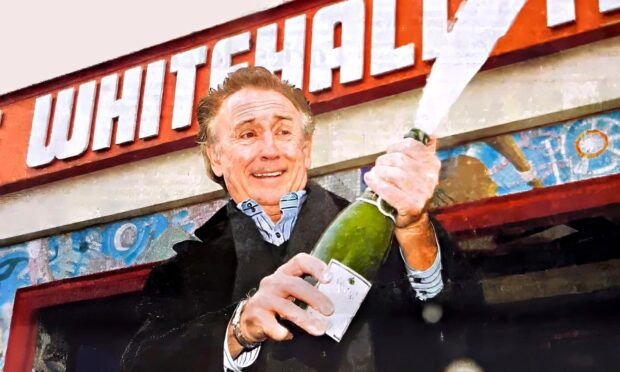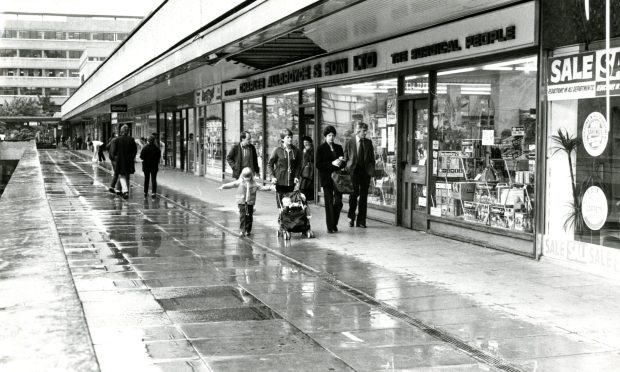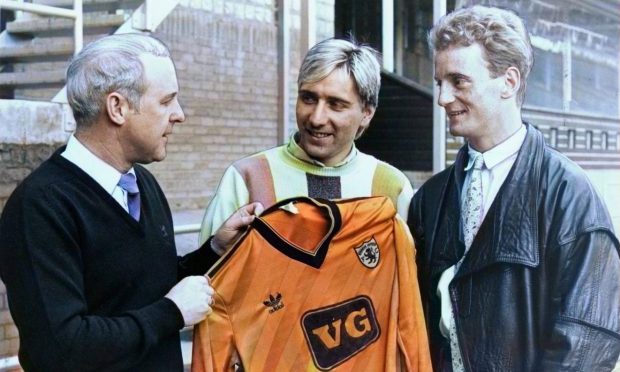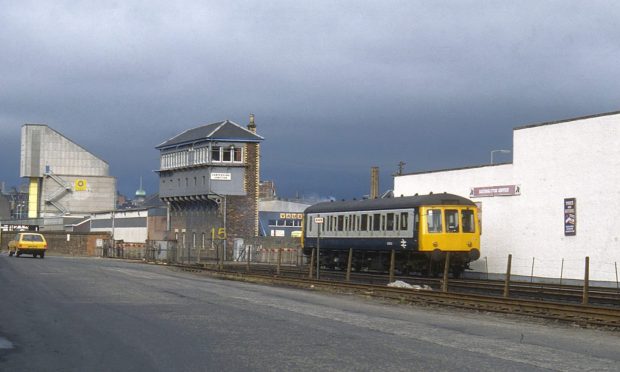He was the buccaneering Brechiner whose goalkeeping talents earned him Scotland recognition more than 90 years ago.
And though Bob Middleton was the recipient of just one, solitary international cap, he not only tasted glory for his country and was cheered alongside such stellar figures as Hughie Gallacher, Alex Jackson, Alan Morton and Alex James, but became one of the most sought-after talents in Britain for a spell.
The Glebe Park outfit recently unveiled a plaque in his honour; and around the club environs, older folk still talk about the man who entered the world at 19 Crocket’s Building in Brechin on January 24 1904.
Football was in Bob’s blood and, like so many youngsters of his generation, he thrived wherever there was an empty patch of grass or piece of pavement where he could join his mates, whether turning out for Brechin Comrades or Edzell or anybody who would provide him with an opportunity to play.
And, while he might have grown up in the shadow of the Great War, nothing fazed this redoubtable character who initially excelled as a full-back before stepping into the goalie’s role when one of his teammates suffered an injury.
He never looked back. And the journey brought a treasure trove of memories.
Football historian, Andy Mitchell, has highlighted the remarkable rise to prominence of the man whose enthusiasm and effervescence in the sport was legendary, whether at Brechin, Cowdenbeath or further afield in England, as news spread of his athleticism and agility between the posts.
Andy said: “Already in his early 20s, Bob found his true vocation as a goalkeeper and made such an impression when he rejoined Brechin City in 1928 that he was soon on the road to a full-time career.
“A few months later, he was signed by Cowdenbeath, who needed a replacement goalkeeper in a hurry for (their injured star) John Falconer, and they could hardly have suspected that his replacement (who cost £200) would be adept enough to win a Scotland cap in 1930.”
Yet that’s exactly what transpired as the north-east Scot found himself rubbing shoulders with several of the the Wembley Wizards.
It was the stuff of dreams and the 26-year-old didn’t disappoint when he joined his compatriots at Celtic Park for the match on February 22.
Just by being there, Middleton was creating history as the first Cowdenbeath player ever to represent his country and he was undaunted during his debut in a pretty comfortable 3-1 victory over Ireland.
In advance of the contest, The Courier singled him out as somebody to watch and cited his heroics in a thrilling cup clash only days earlier as a compelling reason to make him the only new cap in the Scotland line-up.
Journalist Don John wrote: “I am pleased to see Middleton of Cowdenbeath in the side. I have advocated the claims of the Brechin man, on many occasions in the past, and I feel sure he will not let anybody down.
“Bob has been doing great work this season and his display against the Rangers (sic) in the Scottish Cup tie at Ibrox was positively brilliant. (It finished 2-2, before the Glasgow club won the replay 3-0).
“I have no doubt that the exhibition he gave on that occasion greatly influenced the selectors in their choice and they are correct.”
In the match that briefly transformed his life, the prolific Hughie Gallacher opened the scoring in the 31st minute and, despite Harold McCaw equalising before the interval, the Scots claimed the spoils with a brace of second-half goals from Gallacher and George Stevenson in front of a crowd of 31,000.
The Press & Journal commented: “Scotland were not altogether convincing, but there was an impressive debut from Middleton while players such as Gallacher, Evans and Morton did what has become expected of them.
“However, it should be remembered that Ireland had beaten Wales 7-0 in their previous match (which included a double hat-trick for Chelsea’s Joe Bambrick), so they were certainly not to be taken lightly.”
Sadly, from Middleton’s perspective, there were no further international call-ups to celebrate, but if that was, in part, due to him being affiliated to an “unfashionable” club, he was still in demand at the highest level.
If anything, his stock had risen significantly by the start of the new decade and there was no shortage of offers to tempt him to ply his trade elsewhere.
Andy Mitchell said: “As the scouts took an interest, there were several bids from England and he was transferred to Sunderland, with Cowdenbeath pocketing £2,000.
“At Roker Park, he had a good start, but then faded and was playing largely in the reserves by 1932.
“He wanted away, but with a heavy transfer fee on his head, he moved into non-league football with Burton Town in the Birmingham and District League.
“By the end of the season, he was signed by Chester in the Third Division North, and was an excellent stopper until he retired in 1938.”
If there is any sense of squandered potential about his story, it never affected the bold Bob, who was as daft about football as he had ever been.
Following his exit, he took over the Olde Custom House Inn in Chester for a short spell, but gave it up during the Second World War, in which he served in France, before returning to Brechin for the rest of his life.
Once again, he poured himself into the affairs and activities of his beloved Glebe Park club, this time in a range of different roles.
He was on the committee at Brechin City, and worked locally as the janitor of Damacre School and, all the way through to his death in 1984, encouraged youngsters to play the sport he had graced and extolled the virtues of healthy exercise.
Those who met him testify that his passion for football, honed in childhood, never deserted him.
His Scotland cap and jersey are on display in the boardroom.
And now, the plaque, situated at the Trinity Road turnstiles, commemorates one of the nicest and most life-affirming people to play the game.
More like this:
Football Memories: ‘I was there when Burntisland Shipyard held Celtic for an hour in 1939’
